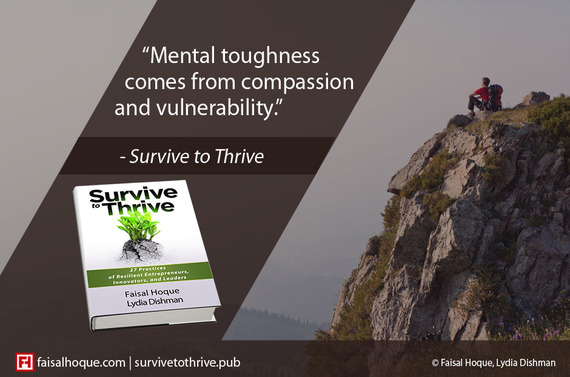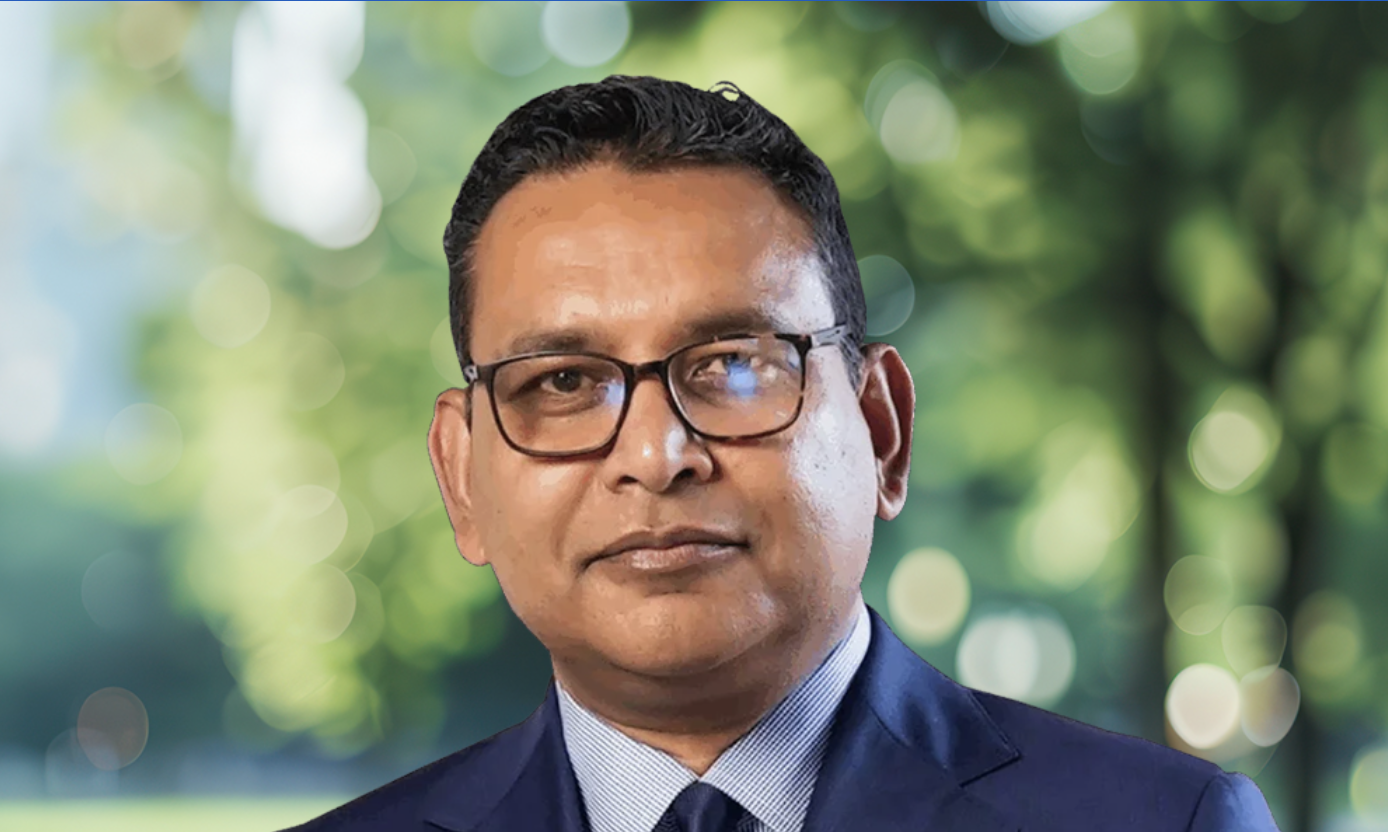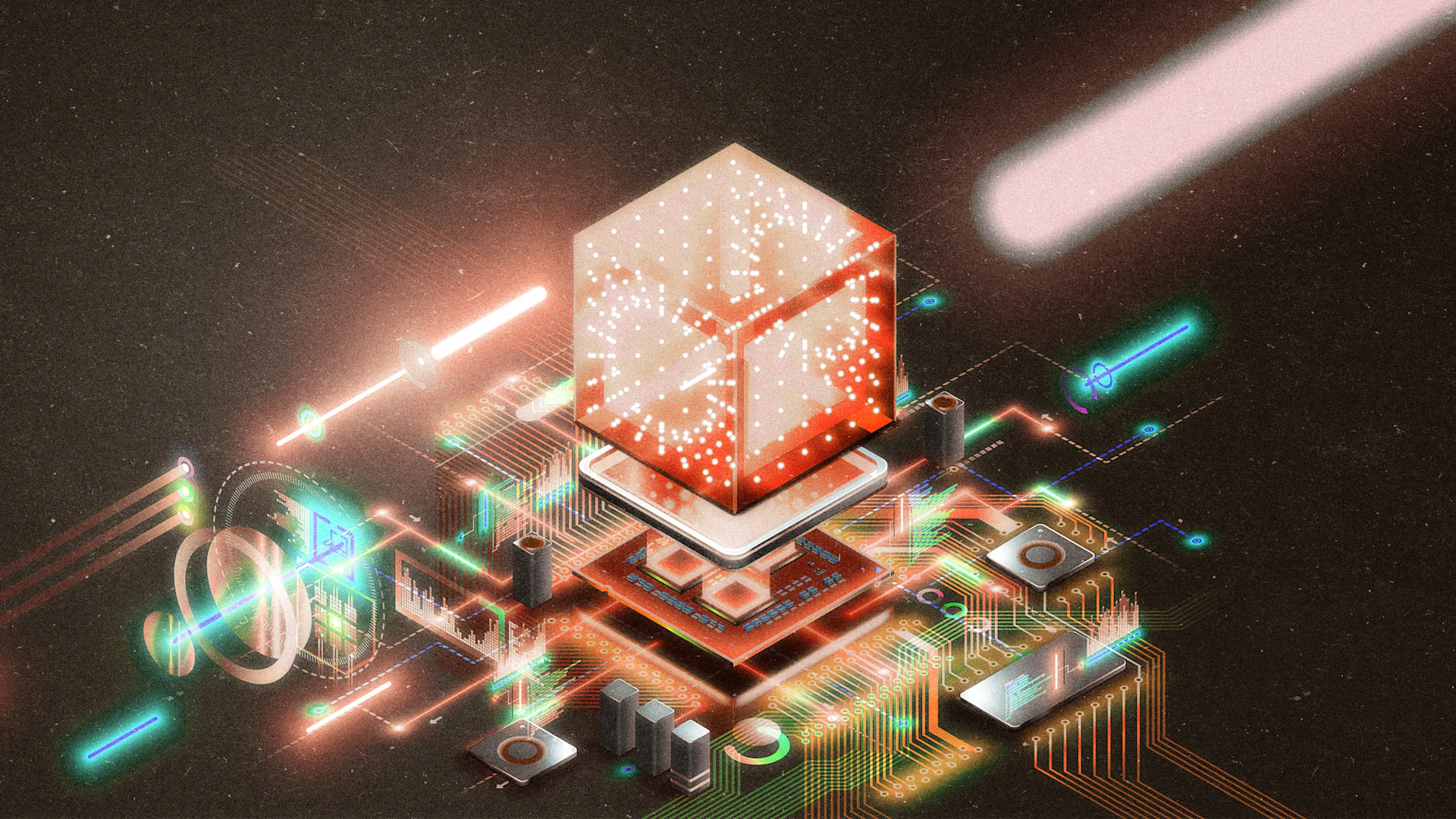
An important step towards building resilience is to go deep within ourselves and strengthen our ability to be grounded.
May 26th, 2015 | by Faisal Hoque

Also featured in LinkedIn Pulse.
Creating your thoughts, following your own path, ignoring skeptics, and dusting yourself off every time you fall requires discipline over energy and drive. Often, that comes solely from within. How we cultivate that inner focus is by taking steps on our personal journey with resilience. This is the focus of our soon-to-be-released book — Survive to Thrive: 27 Practices of Resilient Entrepreneurs, Innovators, and Leaders.
An authentic and inspiring purpose allows for:
- focus by redefining our priorities
- emotional engagement to claim our destiny
- pragmatic paths to move forward
In The Tibetan Book of Living and Dying, Sogyal Rinpoche wrote:
We are fragmented into so many different aspects. We don’t know who we really are, or what aspects of ourselves we should identify with or believe in. So many contradictory voices, dictates, and feelings fight for control over our inner lives that we find ourselves scattered everywhere, in all directions, leaving nobody at home.
An important step towards building resilience is to go deep within ourselves and strengthen our ability to be grounded. This allows us to rediscover ourselves repeatedly.
In the course of writing Survive to Thrive, we learned from some remarkable people how they claimed their destiny, redefined their priorities, and moved forward despite seemingly insurmountable obstacles.
In this post, let me share how highly resilient people redefine their priorities to survive to thrive.
Entrepreneur Andy Sack’s battle with cancer left scars on his psyche that may never heal. But, every time he runs a mental finger over one of them, he is brought back to the lessons he learned during the time his body was fighting to rid itself of illness. Shortly after he began recovery, he took to his blog to hash out and share some thoughts that kept surfacing. In one post, he wrote:
I learned compassion and vulnerability. I don’t assume that everyone I meet in my day isn’t struggling with some life event that makes them feel hurt, vulnerable, or something else. I’m aware that people have all sorts of shit they’re trying to overcome and it doesn’t always look pretty or nice or calm. I personally feel stronger in my vulnerability than ever before. I cry easily. The world and people touch me and I’m happy to be touched.

At first glance, compassion and vulnerability would appear to be the antithesis of resilience. Yet Sack didn’t cave. He carried on with work and life and continues to march forward with a renewed sense of purpose. It is his sense of purpose and self-compassion that has allowed him to redefine his priorities.
Two and a half years later, Sack is back at the doctor for a routine check up. It just so happens to be the same day he is talking to us for the book. Vulnerability is still at the top of mind because, as he says, though the specter of testicular cancer recedes further with each well check, he is at higher risk of developing other cancers. This is not something to shy away from. As a more resilient person, Sack embraces the thought that he won’t live forever and the end could come sooner than expected. It just reminds him to keep focused on the things that truly matter, so he can keep going as best as he can, for as long as he can. As he puts it, “I feel more fragile in life. I am more aware that I could die at any moment and that awareness is humbling.”
As a result, he has been able to be much clearer about what he can contribute and what he gets out of any project, or relationship. “I am still motivated to accomplish stuff, I like playing the game and I have a lot more fun playing the game,” he underscores. Yet he says, “Other people’s egos and insecurity is just driving [stress] and I am not going to take that on. Relationships and people matter a whole lot more.”
I am nurturing empathy.
Whether it comes from a bad boss, an anonymous commenter, or a discouraging inner voice, we all fight our own personal battle everyday. Because of this, empathy demands we step away from that and see the world as another person, to share and understand another person’s feelings, needs, concerns and/or emotional state.
When we put concentrated effort in recognizing others’ sufferings, it allows us to put our sufferings into perspective. For Sack, it came when he opened himself up to listening to others’ problems and helping them when they needed support during times of illness or emotional upheaval. When we empathize with others, our sense of identity is connected to others. As a result, we feel greater in some way and less alone.
I am caring for myself.
Self-compassion is about showing kindness to ourselves. It is vital in overcoming adversity. In his book The Art of Happiness, His Holiness, the fourteenth Dalai Lama wrote, “If you want others to be happy, practice compassion. If you want to be happy, practice compassion.”
We are often very hard on ourselves. For many, even though it may be easy to show compassion towards others. It is often easy to blame oneself, feel sorry, and/or put oneself down. It is only through being able to have compassion and self-encouragement for oneself that we can move forward, day in and day out. Self-compassion comes from when we reflect inward.
I am achieving stillness.
When life turns upside down, maintaining an attitude of genuine thankfulness helps us realize what we have. But to be thankful, one must create the mindset to be thankful. Mindfulness and meditation quiet our mental restlessness. Mental restlessness often includes judgment of others and ourselves, which diminishes our ability to fully connect with the present moment.
True presence allows us to see beyond external layers of difference and identify the core oneness we share with everyone else on this planet. When we recognize the interconnectedness of everything, compassion flows naturally. Being truly in the moment allows us to escape from adversity and conserve our inner energy.
Adapted from Faisal Hoque’s forthcoming book “Survive to Thrive: 27 Practices of Resilient Entrepreneurs, Innovators, and Leaders“ (Motivational Press 2015) with Lydia Dishman. Copyright (c) 2015 by Faisal Hoque and Lydia Dishman. All rights reserved.















